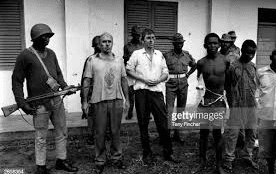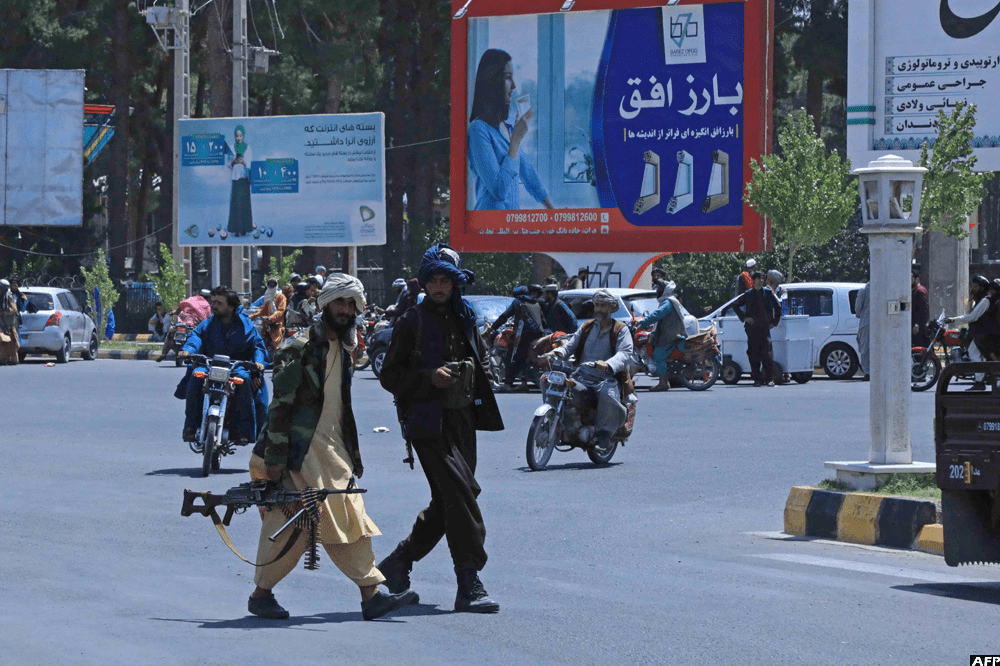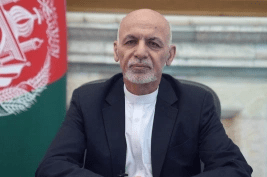
www.newvision.co.ug
How did the Taliban take over Afghanistan so quickly?
The insurgents mixed threats and lures with propaganda and psychological warfare as they took city after city.
The Taliban's stunning and rapid takeover of Afghanistan was the result not only of their battlefield strength, but also a sustained push to force surrenders and cut deals. The insurgents mixed threats and lures with propaganda and psychological warfare as they took city after city -- some with barely a shot fired -- eventually capturing the capital Kabul. How did this happen? Why didn't the Afghan army put up a fight? As foreign troops began their final withdrawal in May, Washington and Kabul were confident the Afghan military would put up a strong fight against the Taliban. With more than 300,000 personnel and multi-billion-dollar equipment more advanced than the Taliban arsenal, Afghan forces were formidable -- on paper. In reality, they were plagued by corruption, poor leadership, lack of training and plummeting morale for years. Desertions were common and US government inspectors had long warned that the force was unsustainable. Afghan forces put up strong resistance this summer in some areas such as Lashkar Gah in the south, but they now faced the Taliban without regular US air strikes and military support.Faced with the smaller but highly motivated and cohesive enemy, many soldiers and even entire units simply deserted or surrendered, leaving the insurgents to capture city after city.How did the Taliban take advantage of low morale?The seeds for the collapse were sown last year when Washington signed a deal with the insurgents to withdraw its troops completely.For the Taliban, it was the beginning of their victory after nearly two decades of war. For many demoralised Afghans, it was betrayal and abandonment. They

https://www.newvision.co.ug/articledetails/112115

Afghan president Ghani says Taliban has won as militants enter Kabul
President Ashraf Ghani fled as the insurgents closed in on the capital Kabul
Afghan President Ashraf Ghani said Sunday after fleeing the country that the Taliban had won, as the militants entered Kabul -- nearly 20 years after they were ousted from power by a US-led invasion. Ghani left as the insurgents closed in on the capital, before ultimately entering the city and taking over the presidential palace, sealing a nationwide military victory in just 10 days. The Taliban have carried out a lightning sweep of the country, with government forces collapsing without the support of the US military, which is finalising its withdrawal in alignment with an August 31 deadline set by President Joe Biden. The insurgents' imminent takeover triggered fear and panic in Kabul among residents fearful of the group's hardline brand of Islam, which it imposed during its 1996-2001 rule. The Taliban have won with the judgement of their swords and guns, and are now responsible for the honour, property and self-preservation of their countrymen,' Ghani said in a statement posted to Facebook, his first since fleeing. They are now facing a new historical test. Either they will preserve the name and honour of Afghanistan or they will give priority to other places and networks,' he added, saying he left to prevent a 'flood of bloodshed.' Ghani did not say where he had travelled to, but leading Afghan media group Tolo news suggested he had gone to Tajikistan. After initially ordering fighters not to enter the capital, a


'And the devil will say, when the matter is decided: Surely Allaah promised you a promise of truth, and I promised you, then failed you. And I had no authority over you, except that I called you and you obeyed me; so blame me not but blame yourselves. I cannot come to your help, nor can you come to my help. I deny your associating me with Allaah before. Surely for the unjust is a painful chastisement'
President Joe Biden ordered the deployment of an additional 1,000 US troops to help secure the evacuation of embassy employees and thousands of Afghans who worked for American forces and now fear Taliban reprisals. That brought the total expected in Kabul in the coming days to 6,000. Biden's decision to stick to his withdrawal timetable has come under increased scrutiny given the collapse of the Afghan armed forces, but he insisted there was no choice and he would not 'pass this war' onto another president. Ghani's government was left completely isolated on Sunday after the insurgents overran the anti-Taliban northern stronghold of Mazar-i-Sharif and the eastern city of Jalalabad. Like with most of the other captured cities, the seizure of power came after government forces surrendered or retreated. Videos posted on pro-Taliban social media accounts showed the group's heavily armed fighters in cities across the country, waving white flags and greeting locals. In Kabul, many resident were already resigned to the Taliban taking power. 'My only wish is that their return leads to peace. That is all we want,' said Kabul shopkeeper Tariq Nezami. For the tens of thousands who have sought refuge in Kabul in recent weeks, the overwhelming mood was one of apprehension and fear. 'I am worried there will be a lot of fighting here,' one doctor who arrived with his 35-strong family from Kunduz told AFP, asking not to be named. 'I would rather return home, where I know it has stopped.'
https://www.newvision.co.ug/articledetails/112090
hargeisa, somaliland population 1,250,000
brazzaville, republic of congo population 2,200,000
havana, cuba population 3,000,000 port au prince, haiti population 800,000 kumasi, ghana population 1,600,000 lome, togo population 900,000
dar es salaam, tanzania population 3,500,000 matola, mozambique population 725,000 panama city, panama population 600,000
riyadh, saudi arabia population 9,000,000 gaborone, botswana population 300,000
mombasa, kenya population 900,000 kuala lumpur, malaysia population 2,000,000
kingston, jamaica population 1,500,000
luanda, angola population 4,000,000
phnom penh, cambodia population 2,500,000
addis ababa, ethiopia population 3,500,000
sanaa, yemen population 3,000,000
kinshasa, dr congo population 9,000,000
harare, zimbabwe population 2,500,000
shanghai, china population 22,000,000 cairo, egypt population 12,000,000
maracaibo, venezuela population 2,000,000 windhoek, namibia population 300,000
mexico city, mexico population 10,000,000 brikama, gambia population 85,000
nouakchott, mauritania population 750,000 kandahar, afghanistan population 600,000
khartoum, sudan population 3,000,000 kigali, rwanda population 850,000
ouagadougou, burkina faso population 2,000,000 quezon city, philippines population 4,000,000 bangui, central african republic population 620,000 n'djamena, chad population 850,000
anju, north korea population 400,000 libreville, gabon population 700,000
mumbai, india population 18,000,000 cape town, south africa population 4,500,000
georgetown, guyana population 300,000 sousse, tunisia population 250,000 lagos, nigeria population 10,000,000 ho chi minh, vietnam population 9,500,000 bata, equatorial guinea population 300,000 cotonou, benin population 900,000
dakar, senegal population 3,200,000 bafata, guinea bissau population 35,000 mako, mali population 2,500,000 faisalabad, pakistan population 3,500,000
niamey, niger population 900,000 mogadishu, somalia population 3,000,000 bujumbura, burundi population 450,000 ndola, zambia population 450,000